Discover Your New Neighborhood with Ease
Specially designed for international customers of Honjo Real Estate Corporation, our interactive map helps you discover the neighborhood around your apartment. Simply select your residence and a destination—such as your university, supermarket, restaurant, or clinic — and instantly see the walking route, time, and live directions on Google Maps. From daily essentials to campus life, everything you need is just a click away. Let’s explore and feel like a local from week one.
Our destination list keeps expanding! Right now it highlights the key places most visited by students, professors, and the community — with more locations being added over time.
Note: No Google APIs used. The preview is an embed; live distance/time shows on Google Maps after you click the button.
Activate Basic Utilities
In Japan, tenants are responsible for activating utilities like electricity, gas, and water when they first move into a new place. It is also the tenant’s responsibility to close utility contracts at the place they are moving out of. After signing your rental contract, the real estate company will provide you with the telephone numbers for the local electricity, gas, and water companies.
If you have difficulty with Japanese, you can request your school's student office to activate the basic utilities on your behalf, or you can also ask the real estate company to help you out. Please note that the real estate company can assist you in activating the utilities, but they will not be able to terminate the utilities on your behalf when you leave.
Electricity ( Kyushu Electric Power : 0120-639-452 )
Water ( Kitakyushu City Water and Sewer Bureau : 093-582-3031 )
Gas ( Check with Honjo Real Estate Corporation : 093-601-0004 )
Lifeline & Emergency Contact List
| Category | Provider | Contact |
|---|---|---|
| Electricity | Kyushu Electric Power | 0120-639-452 |
| Water | Yahata Nishi Waterworks Bureau | 093-582-3031 |
☆ Please remember to complete the gas activation procedure upon moving in. Please note that the gas company differs for each apartment building.
| Building Name | Gas Company | Activation Contact |
|---|---|---|
| Amusement Iseigaoka | Seibu Gas | 093-603-0009 |
| College Life Ishimoto | Seibu Gas | 093-603-0009 |
| Habitat | Seibu Gas | 093-603-0009 |
| Haranaka Building | Seibu Gas | 093-603-0009 |
| Grand Heights Kashimoto | Seibu Gas | 093-603-0009 |
| Sunlight Hills | Seibu Gas | 093-603-0009 |
| Chiyogasaki Mansion | Seibu Gas | 093-603-0009 |
| Domiru Chiyogasaki | Seibu Gas | 093-603-0009 |
| Honjo Sky Heights | Seibu Gas | 093-603-0009 |
| Ryubandoru | Seibu Gas | 093-603-0009 |
| Aina Heights | Seibu Gas | 093-603-0009 |
| Green Kopo Sato | Seibu Gas | 093-603-0009 |
| K&N Building | Seibu Gas | 093-603-0009 |
| Sun Akasaka Mansion | Seibu Gas | 093-603-0009 |
| Famiru Sugino | Seibu Gas | 093-603-0009 |
| Meison Sugino | Seibu Gas | 093-603-0009 |
| Kopo Sugino | Seibu Gas | 093-603-0009 |
| Rikimaru Sun Heights | Seibu Gas | 093-603-0009 |
| RioHirota Mansion | Seibu Gas | 093-603-0009 |
| Kopo Sugino No. 2 & 3 | Seibu Gas | 093-603-0009 |
| Villa Academia | Yahata Gas | 093-691-3931 |
| Kopo Felio | Yahata Gas | 093-691-3931 |
| Riverfield | Hokubu Eto Sangyo | 093-591-2490 |
| Aso Building | Hibiki Home Gas | 093-482-6450 |
| Meison Oda | K.R.G Gas | 0949-22-0341 |
| Kopo Seizan | Shoei Bussan | 093-201-3391 |
| Rikimaru SunHeights No. 2 | Sonoda Gas | 093-612-2612 |
Trash Disposal
In Japan, tenants are expected to dispose of their household trash using Kitakyushu city-designated trash bags. These designated trash bags can be purchased at any nearby convenience store. Please check with the real estate company for the location of the trash pick-up point for the property you rented.
You are required to put the trash out for pick-up by 8:30 in the morning at the designated pick-up area, using only the designated trash bags. If you not sure please check your management company.
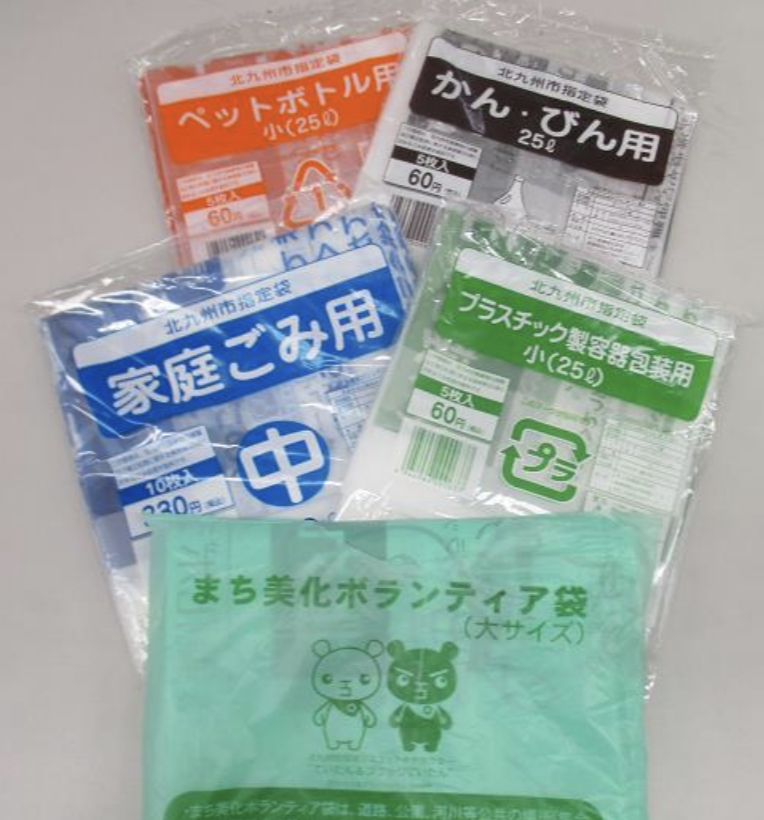
| Area | Household Garbage | Plastic |
|---|---|---|
| Chiyogasaki | Monday ・ Thursday | Tuesday |
| Iseigauka | Monday ・ Thursday | Friday |
| Honjo 1 chōme | Monday ・ Thursday | Tuesday |
| Honjo 2 chōme | Monday ・ Thursday | Friday |
| Honjo 3〜5 chōme | Monday ・ Thursday | Tuesday |
| Rikimaru | Monday ・ Thursday | Tuesday |
| Oura | Monday ・ Thursday | Friday |
| Orio | Monday ・ Thursday | Friday |
For other area in Yahatanishi Ward area and the latest garbage pick-up schedule, please refer to Kitakyushu City Trash Collection Schedule.
Fighting Cockroach Infestations
While cockroach infestations can be a common issue in multi-unit dwellings, it is the responsibility of each resident to maintain the hygiene of their own unit and to take proactive measures to prevent and address pest problems. This responsibility is crucial due to the nature of these pests.
Cockroaches in Japan are relatively small (on average 3.5 to 4.5 cm), but they move very quickly—sometimes they even fly toward you. Critically, no matter how clean your room or house is, cockroaches may appear out of nowhere. You can't rule out the possibility that they are migrating from neighbors on the left, right, upper, or lower floor. They can enter not only through doorways and gaps but also through drains, in cardboard boxes delivered to your home, in the soil of houseplants, or via the outdoor units of air conditioners.
For all these reasons, cockroaches remain a persistent challenge in places where people live, making constant vigilance necessary.
How to Avoid Cockroaches
Do not leave garbage exposed : Cover trash cans to prevent food odors.
Catch and kill : Use products such as Product 1, Product 2, Product 3 (see below, from left to right).
Get rid of them : Use a water-based fumigant pesticide such as Product 4 or Product 5 (see below)


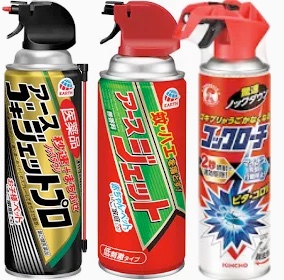
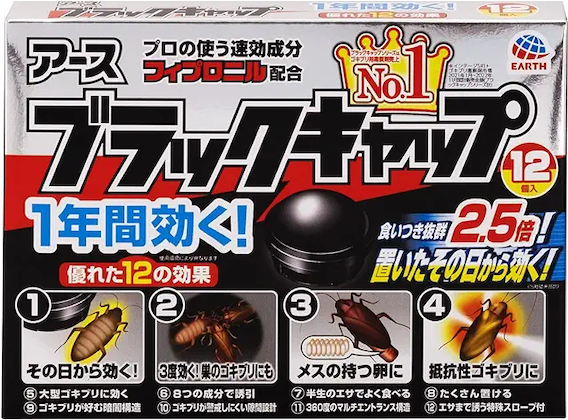
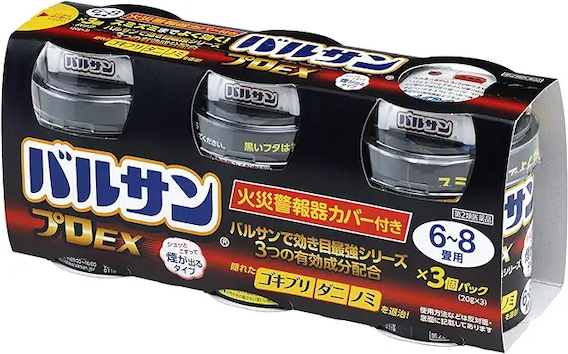
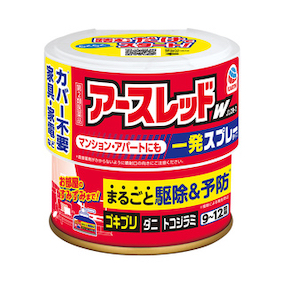
Rainy Season Mold Prevention Tips
Throughout Japan’s rainy season, the combination of warmth, high humidity, and limited ventilation creates ideal conditions for mold to thrive. This is a common battle for nearly every Japanese household, regardless of building age or structure. Residents across the country adopt various tools and habits to manage moisture and prevent mold before it becomes a serious issue.
One widely used solution is the dehumidifying agent known as 除湿剤 (joshitsuzai). These products are easily found in local supermarkets and drugstores. I highly recommend using moisture-absorbing containers. Their design is simple and straightforward, yet remarkably effective—they absorb excess moisture from the air, which collects in the bottom of the container. After about a month, the amount of water collected offers a clear picture of the humidity level inside your home.
It’s important to note, however, that these containers are not designed for large or open spaces. Their compact size makes them ideal for closets, storage shelves, and other confined areas where moisture often accumulates.
In the past, some international residents have raised concerns about mold in their apartments, attributing it to structural design flaws and requesting that property owners bear the cost of repairs or renovations. However, based on my personal experience living in Japan for over 30 years, I can say that mold and dampness are widespread challenges—faced even in well-built homes and modern apartments. This is primarily due to Japan’s naturally humid climate, especially during the rainy and summer seasons.
In most cases, mold prevention is regarded as a normal part of household maintenance in Japan. Tenants are generally expected to take proactive steps, such as ensuring proper ventilation, running fans, and using dehumidifiers or除湿剤, to control indoor moisture.
While every situation should be assessed individually, it’s important to understand that mold issues are not necessarily signs of poor construction, but more often the result of environmental conditions and daily lifestyle habits.
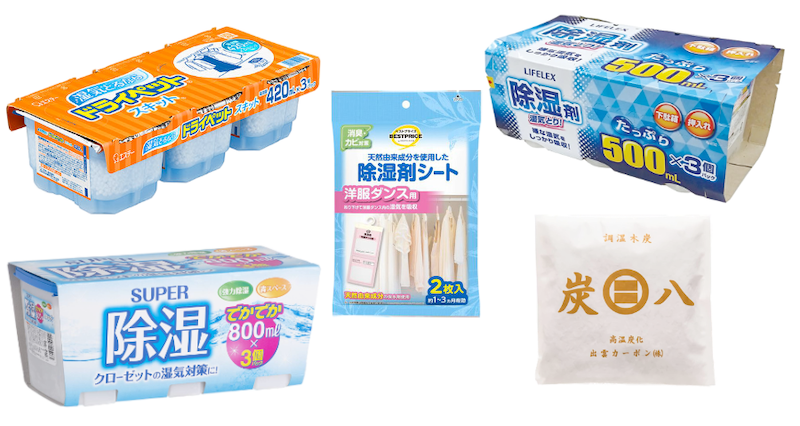
For Reference Only
Please note that this is a simulation and does not represent an official estimate.
For an official initial estimate, please contact Honjo Real Estate Corporation directly at info@honjofudousan.com.
Prices may change without prior notice.
| Item | Notes | Amount (JPY) |
|---|---|---|
| Total Cost | — | |
Costs Not Calculated*
Important to Note (Disclaimer & Policies)
Glossary – よく使う不動産用語 (JA/EN)
Frequently Asked Terms
FATs
Welcome! We're excited to help you find your new home in Kitakyushu City. We know that the first step —understanding the initial fee estimate — can be the most daunting due to unfamiliar terms.
Don't worry, you're not alone! This FAQ is designed to demystify those Japanese terms with English translation and explain the "what" behind each cost. These fees are standard practice for most rental agreements in Japan and facilitate services like key money, property insurance, and guarantor services.
We've covered the common terms here, but if you have a question about any other item on your estimate that we haven't listed, please just ask! We're here to help every step of the way and are always happy to clarify anything for you.
Notice of Lease Cancellation
Once your move-out date has been finalized, please fill in the necessary details below and send this form to our company.
Please be advised that once this notice has been submitted, the cancellation date cannot be changed.
For students graduating and planning to move out in February or March: Even if your exact move-out date is not yet confirmed, please submit this cancellation notice in advance once you have decided to move. In this case, please write only the month (e.g., February or March) in the expected vacate date field. Please inform our office as soon as your specific moving date is confirmed.
We Are Here to Assist
Contact Us
Lorem ipsum veniam anim ea veniam magna ut esse dolor dolore ex aliquip ullamco. Cillum nisi veniam, aliqua sunt ex voluptate veniam ullamco.